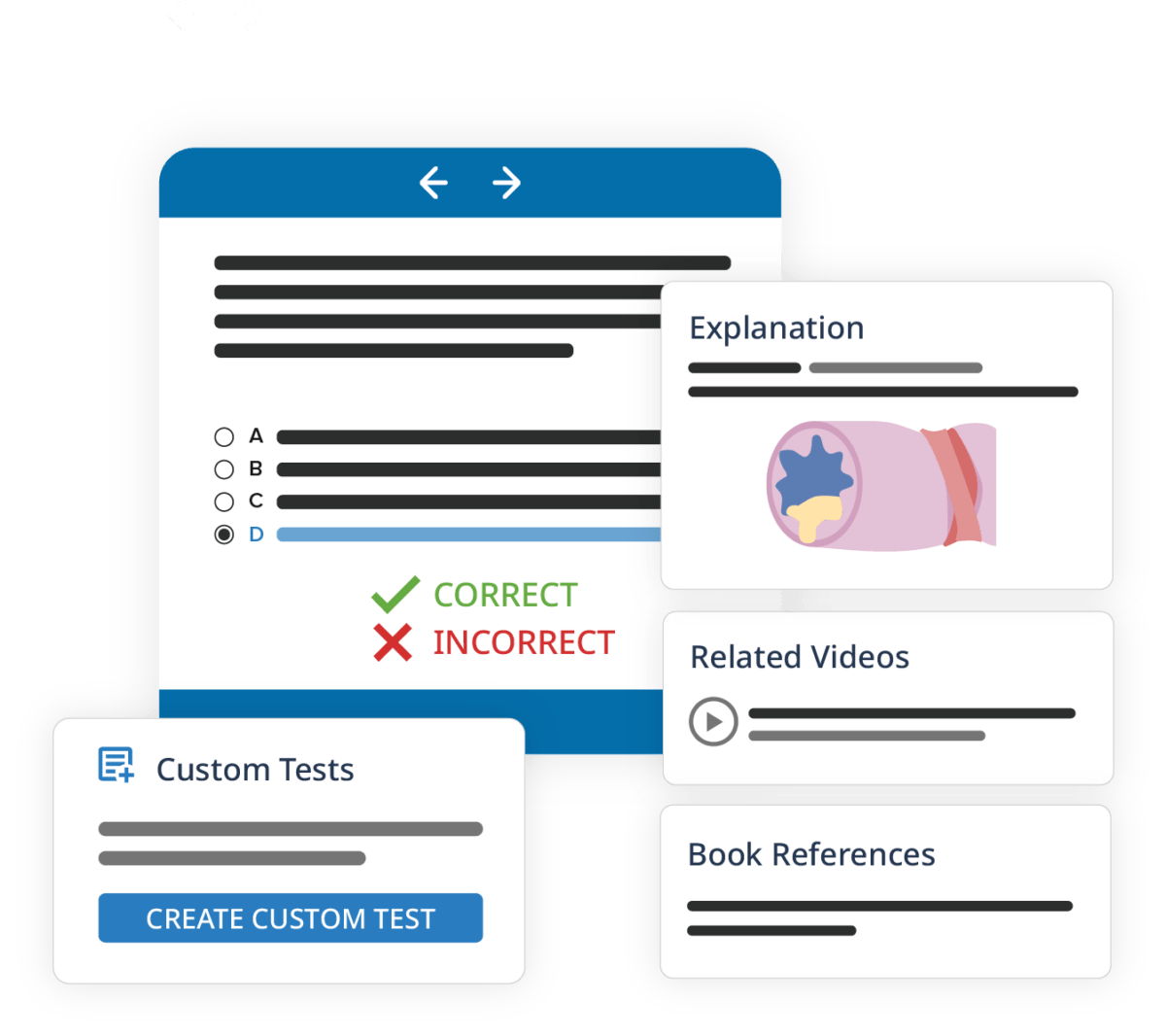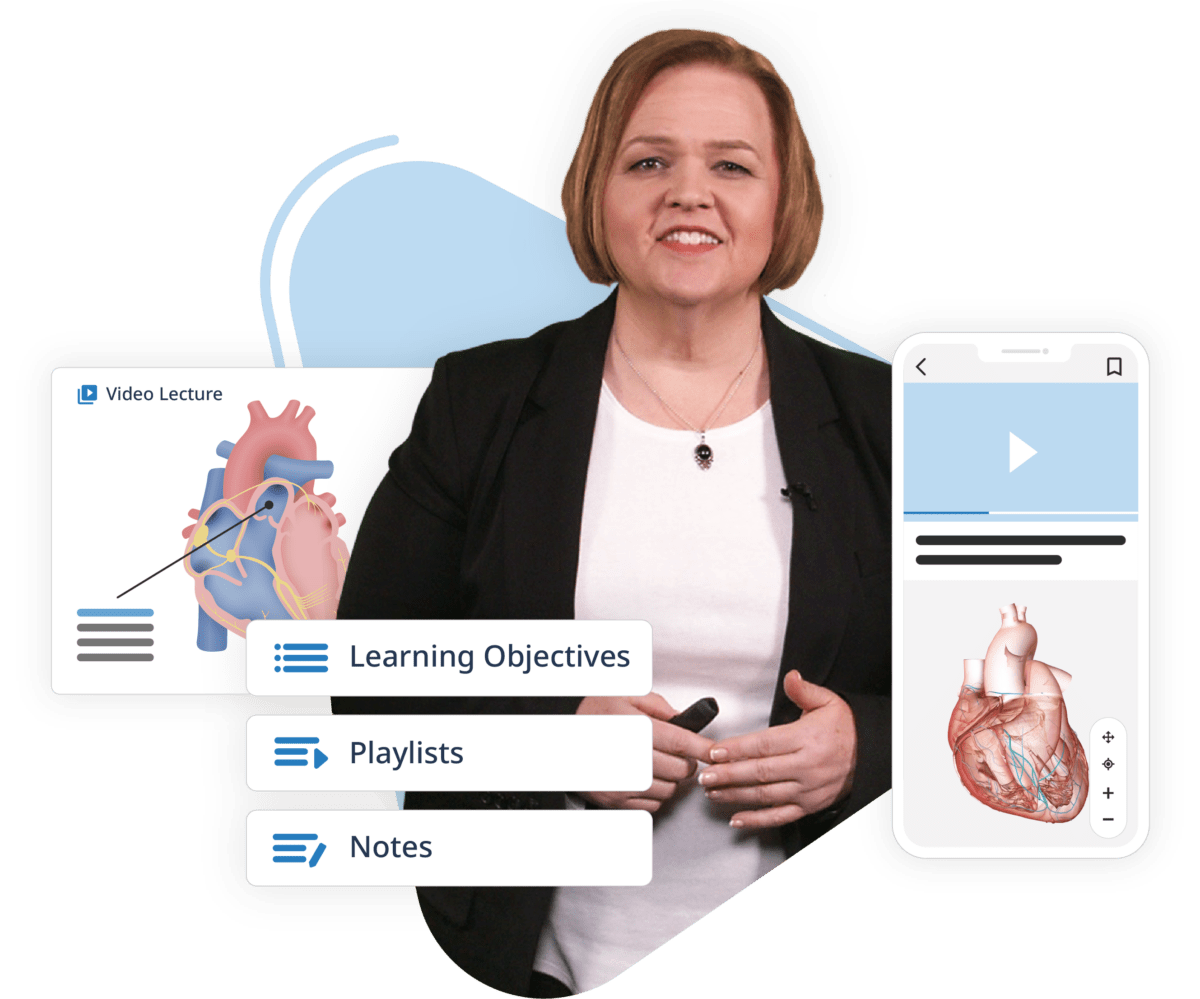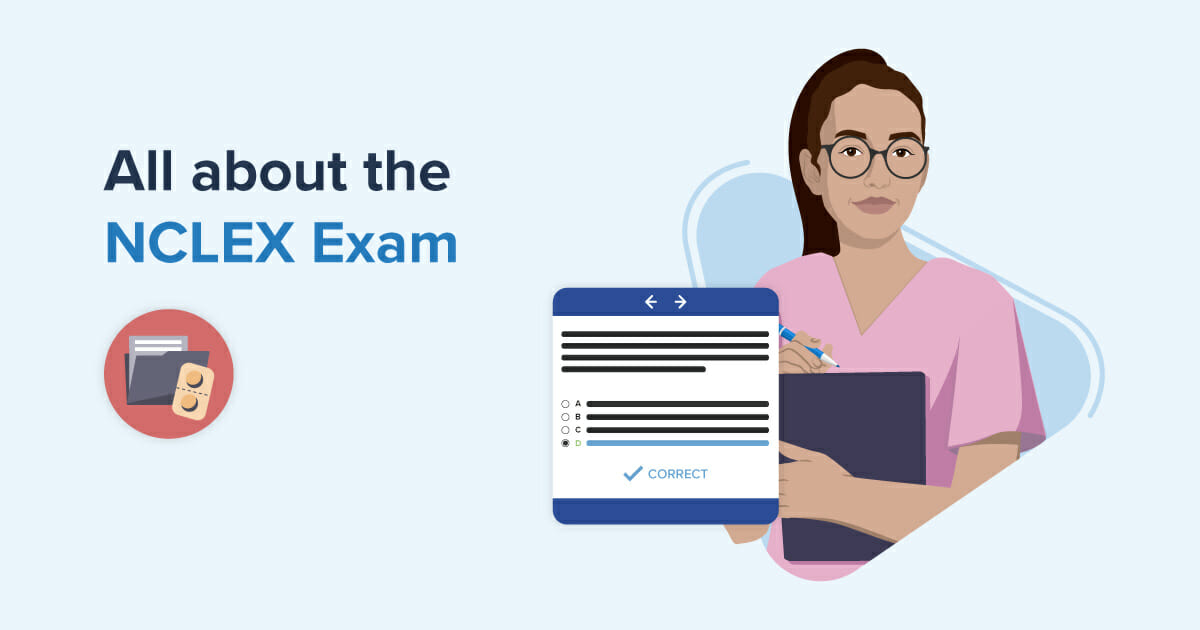Let’s Take The Mystery Out of The NCLEX®
NCLEX® stands for National Council Licensure Examination. It represents the national standard that all registered professional nurses and practical nurses in the United States must pass to become licensed. The NCLEX-RN® and NCLEX-PN® were created by the National Council of State Boards of Nursing (NCSBN), an independent organization through which many nursing regulatory bodies collaborate to support the nursing profession. For the following, I am going to focus on the NCLEX-RN®.

Where Are the NCLEX® Test Centers?
The NCLEX® is taken at one of the many Pearson VUE testing facilities throughout the country. The exam must be pre-scheduled with Pearson VUE only after you have satisfied all the eligibility requirements. Find an NLCEX® Test Center.
Security is taken very seriously, so pay attention to the identification requirements and limitations as to what you can have with you when you test. After checking in, you will be provided a computer on which to complete your exam.
How is the NCLEX® Graded?
The NCLEX® uses what’s called computerized adaptive testing (CAT) to grade the exams. This means that as you are taking your NCLEX®, the computer is continuously making an assessment of your abilities. It does this by looking at answered questions and the difficulty of those questions.
Based on the computer’s assessment of your ability, the next question you receive will be one that you have about a 50% chance of answering correctly. The computer is designed to do this so that the questions don’t end up being too easy or too hard. The more questions you answer, the more accurately the computer is able to assess your ability.
The next question running through most people’s minds is “how many questions am I going to have to answer”?
How Long is the NCLEX®?
The number of questions you have to answer depends entirely on your performance and how quickly the CAT program determines your ability with confidence. The CAT program uses what’s called a 95% confidence interval to determine whether you pass or fail. This means the test is going to stop giving you questions when it is 95% certain that your abilities are either above or below the passing standard.
Alongside the 95% confidence interval, there is an identified minimum and a maximum number of questions to be answered. You will never have fewer than 75 or more than 265 questions when taking the NCLEX-RN®. How many you get again depends on the CAT program’s assessment of your ability.
There is also a 6-hour time limit to the NCLEX-RN®. This NCLEX® time limit includes time allotted for needed breaks, so you should know the clock never stops ticking.
How Much is the NCLEX®?
There is a schedule of fees for the NCLEX®, but at minimum, it’s going to run you $200 for licensure in the United States. The NCSBN is also extremely clear that there are no refunds for any reason.
Please ensure that you are scheduling your test for a time when you are not at risk of missing your test. Rescheduling can be done if your test is more than 24 business hours away. Business hours mean that if your test is on Monday, you need to reschedule by Friday.
How Do I Get My Results?
Every NCLEX® exam is scored two times. Once by the computer at the testing center, and again once the information has been sent to Pearson VUE. Official results will only be sent to the candidate by the nursing regulatory body applied to for licensure.
Some states participate in Quick Results Service. If they do, you can get your unofficial results in as little as two days. Quick results do not represent authorization to work as a nurse – that only comes from the respective state nursing regulatory body.
What If I Don’t Pass?
People may not be successful in passing the NCLEX® for a variety of reasons, and while I don’t want you thinking about a negative outcome, you should know that failing the exam isn’t the end of the world. Many successful nurses have needed to take the exam more than once.
People who do not pass the exam will receive a candidate performance report. This report will provide you with information to identify areas where you did well and areas where you need to improve. This allows you to focus on those areas and it will set you up for success on your second attempt.
According to the NCSBN, you will need to wait a minimum of 45 days before you can take the exam again. Some States make you wait even longer, which would be indicated in the follow-up testing authorization from the nursing regulatory body.
How to Prepare for Your NCLEX® Test Day
By the time you reach the end of your nursing program, much of what you need for success is already there. You’ve been building your knowledge, skills, and abilities throughout your entire program, and in some ways, the NCLEX® is just another way to prove you can pull it all together.
Knowing the arrival and testing process and how to get through your NCLEX® test day are some things you can do to set yourself up for success as your NCLEX® approaches.
Know the process
The process to register and scheduling the exam require a few very important steps that need to be completed in order to keep things running smoothly. I know it can feel confusing and overwhelming at times when dealing with regulatory agencies and applications.
The NCLEX® Pathway to Excellence is a great resource to have as you go through the process of registering and preparing for your test.
Studying nursing has never been easier.
Set yourself up for success with Lecturio.
How to Get through NCLEX® Test Day
Preparation for taking your NCLEX® exam runs right up to the time of the test. Put yourself in the best position possible. I know in the days leading up to my exam, the tension was definitely building. I also scheduled my test for July 5th, the day after a major holiday. What was I thinking?!
I got through it though, using some helpful tips from my friends who had been down this road.
Get your rest
You want to go into the NCLEX® with a clear head. I’m not saying I expect you to be free of all feelings of nervousness or anxiety, but you need to be free from distractions and feel good.
You need to be well rested going into the NCLEX®. This means you need to get a good night’s sleep the night before, and if you’re not what you would consider a morning person, don’t select a test time in the morning. When scheduling your test day, take advantage of the variety of time slots available to you and pick one that fits you as a person.
What to bring to the NCLEX®
The most important thing to bring with you on test day would be your identification. During the check-in process for your test at the NCLEX test center, you will be required to present two forms of valid ID. The IDs you bring need to meet all requirements or else you will not be able to take the test.
- The ID needs to be valid, expired IDs are not accepted.
- The ID needs to be an original, it cannot be a copy of an ID.
- The ID needs to have your first and last name on it, just as it appears on your application for testing.
- One of the two IDs you present must be a government-issued ID with a photo and signature.
Beyond your ID, there really isn’t anything else you need to bring. Because you can’t bring anything into the test with you, everything will end up locked in one of their lockers anyway.
Arrive early
Consider doing a drive-by at some point before test day so you know where you’re going. Knowing how to get there, where to park, and where the actual testing center is located will be one less thing to worry about on test day.
Do your best to arrive early. A good goal would be to arrive at the NCLEX® test center 30 minutes before your scheduled start time. If you arrive more than 30 minutes late you may not be allowed to test.
Related videos
NCLEX® Test-Taking Tips
Passing the NCLEX® is just as much about knowing how to take the test as it is about knowing the content.
Like I said before, school is over and you likely have the knowledge you need.
Find the keywords in the question and think about how they relate to the possible answers. For example, if the question is asking about the assessment of a patient, you would likely want to focus on the answers that include assessment-related information.
Look for synonyms in the question and the answers. For example, if the question is asking you to identify “signs”, look for possible answers that contain “symptoms.”
Stay away from extremes in the possible answers to the question. For example, answers that include words like “always” or “never” are often not the correct answer.
Opposites attract. If you find two answers that contain opposites, one of those is likely the correct answer. For example, if one answer includes an “increase in blood pressure”, and another includes a “decrease in blood pressure” one of those is likely the correct choice.
Remove distractors from the possible answers. Distractors are possible answers that are put there to do just that, distract you from the correct answer. If you are able to quickly identify answers that are obviously wrong, it narrows down your potentially correct answers.
Read the questions entirely and carefully. Rushing is not worth it, and you might miss an important word such as “except”. For example, all of the following are signs of diabetes except. If you miss that, you may quickly pick an answer that feels correct because it is in fact a sign of diabetes but that’s not what the question is asking.
Prioritize the answers according to what is most significant or meaningful to the patient. For example, if among the answers more than one seems like it could be correct, think about how they line up in terms of priorities. A nursing assessment would always come before an intervention such as medication. Assessing the airway or administering oxygen are often things that rise to the top of the needs list.
Don’t second-guess yourself. More often than not the first answer we put down is the correct one. Nurses (and future nurses) often have a bad habit of overthinking. Don’t allow yourself to overthink the answers and start second-guessing yourself.

Master NCLEX test-taking with Prof. Rhonda Lawes
Prof. Lawes will teach you how to tackle the new item types confidently, step-by-step, in Lecturio’s online NCLEX-question walkthrough course. Join her now!


